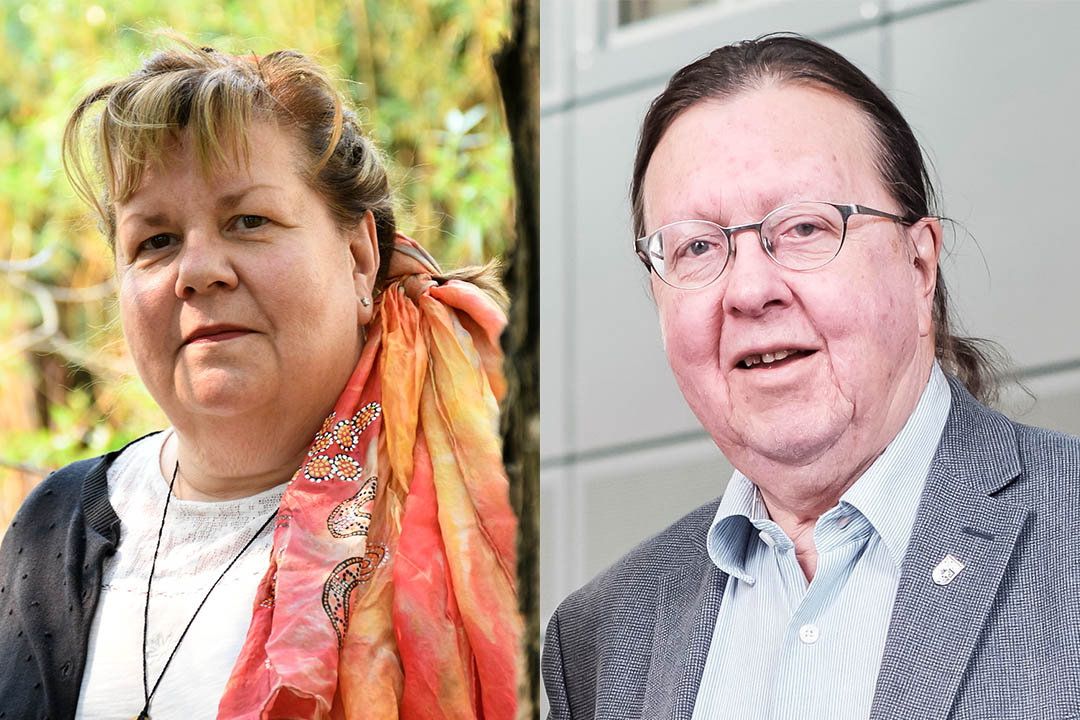
Researchers at USask providing Indigenous leadership in $5M grant for national heart failure research network
Leading Indigenous researchers at the University of Saskatchewan (USask) will play a critical role in a new national, patient-driven network addressing the challenges of heart failure (HF), a common condition that is often fatal and on the rise in Canada and which disproportionately impacts Indigenous people.
By Sarah MacDonaldDr. Alexandra King, Cameco Chair in Indigenous Health and Wellness in the College of Medicine, and Professor Malcolm King, Department of Community Health and Epidemiology and the scientific director of the Saskatchewan Centre for Patient-Oriented Research, are part of a Government of Canada-funded network of 100 researchers from across Canada, led by Dr. Jean-Lucien Rouleau of the Montreal Heart Institute. The funded research, called the Canadian Heart Failure Transformation Alliance (CHF Alliance), will strive to halt the progression of HF and understand the mechanisms involved in improving the lives of Canadians at all ages living with HF and other heart conditions.
“We are thrilled to be providing leadership nationally. We have a team that combines rich and diverse Indigenous research expertise and patient-oriented research expertise, especially that involving Indigenous people with lived and living experience,” said Dr. King.
The Kings, working with Indigenous Elders and Knowledge Holders, will develop Indigenous-led approaches to improving the diagnosis and care of HF in Indigenous people. Using etuaptmumk (Two-eyed Seeing), they will interweave Indigenous ways of knowing, being and doing with Western science, working with Indigenous peoples to improve prevention, early diagnosis and treatment of HF.
“Our vision is to find the harmonies between the Indigenous and Western approaches to create sustainable, community based, culturally safe and responsive approaches to HF services,” said Prof. King.
The Canadian Heart Failure Transformation Alliance spans eight provinces and one territory, and involves 12 patient/caregiver partners, 13 Indigenous partners, and 132 investigators (42 per cent women; 24 early-career investigators). Six university-based research hubs will form the backbone of the Canadian Heart Failure Transformation Alliance, and at USask, which is one hub, the Kings will lead this critical research.
“We strive to address the most significant issues facing our communities, and to find local solutions with global applications,” said Baljit Singh, USask vice-president research. “As part of this research network, we can contribute significantly towards addressing one of the most pressing health issues facing Canadians, particularly within Indigenous communities.”
Rouleau, professor of medicine at the University of Montreal and a cardiologist at Montreal Heart Institute, added that he was excited by the scope and breadth of the medical expertise and the lived experience of patients within the alliance.
“Together we will investigate how to extend the lifespan and improve quality of life for the 20 per cent of Canadians who get heart failure,” he said.
The Canadian Heart Failure Transformation Alliance is supported with $5 million from the Canadian Institutes for Health Research in partnership with Heart and Stroke Canada, and the NIH’s Heart, Lung and Blood Institute, as well as $27 million in support (cash and in-kind) from other partners including the Canadian Cardiovascular Society, the Canadian Donation and Transplantation Research Program, Centres of Excellence in Arrhythmias, and the Centre of Excellence on Partnership with Patients and the Public.
For more information, visit www.indigenouswellness.ca.
Article re-posted on May 4.
View original article.
